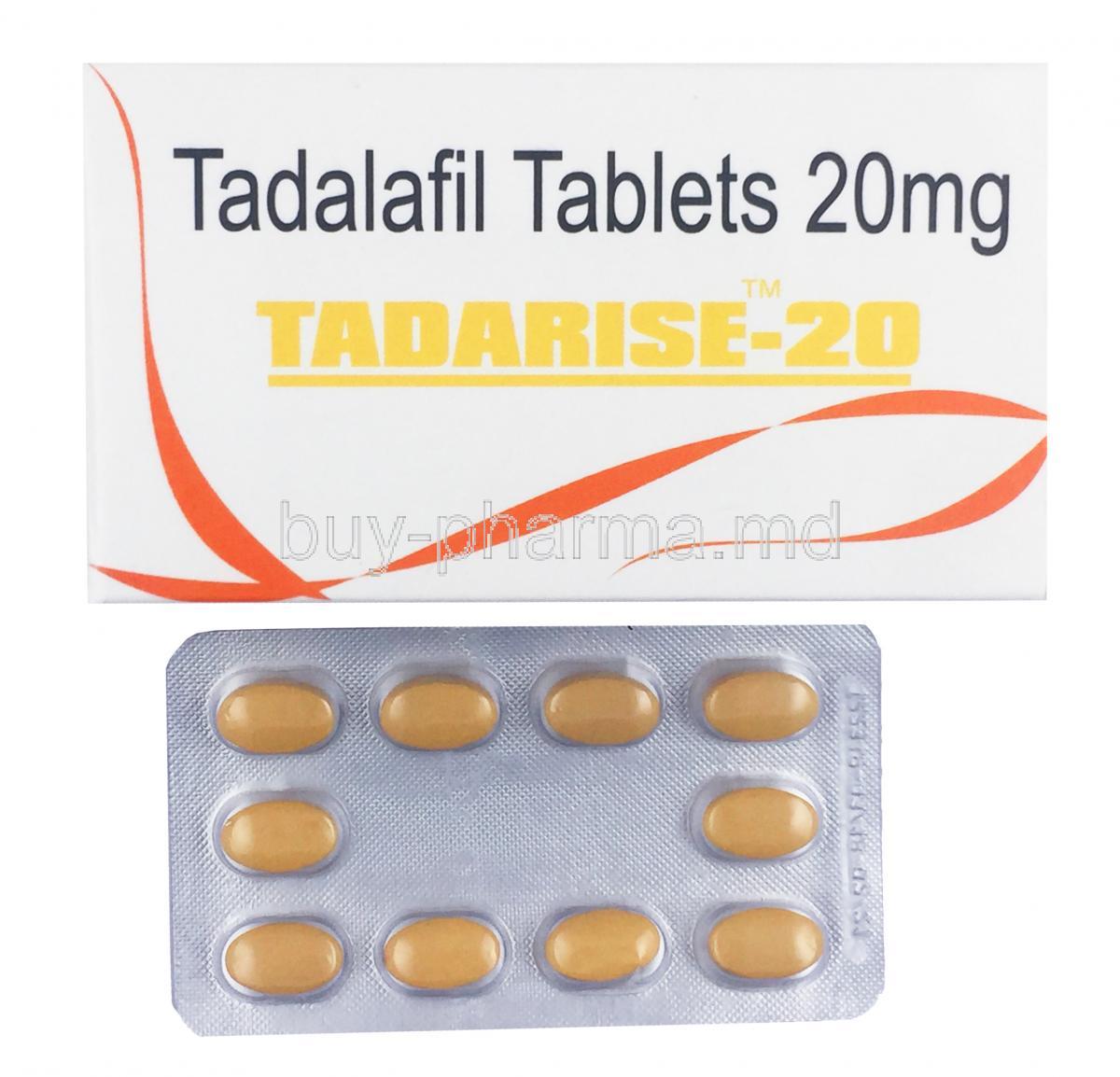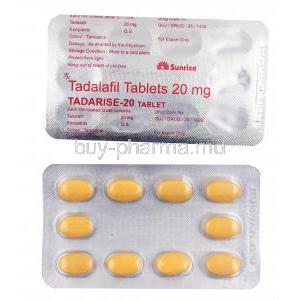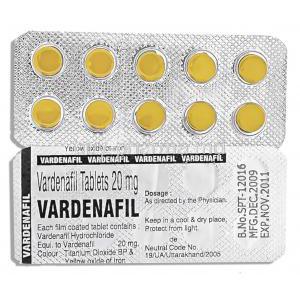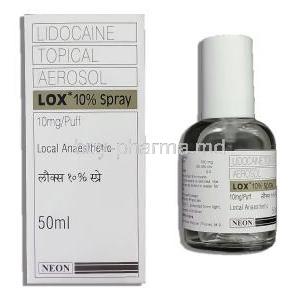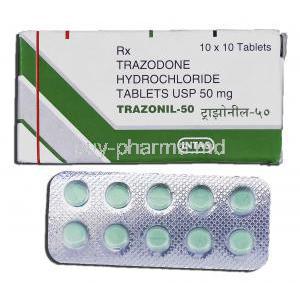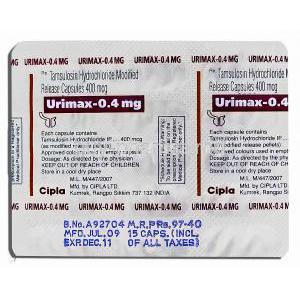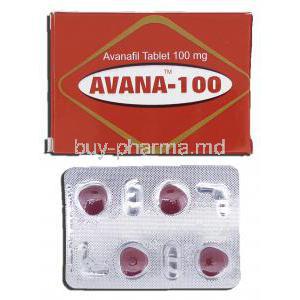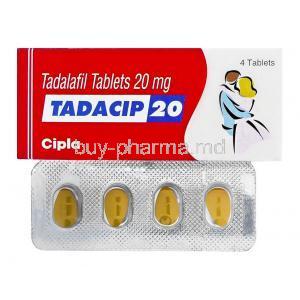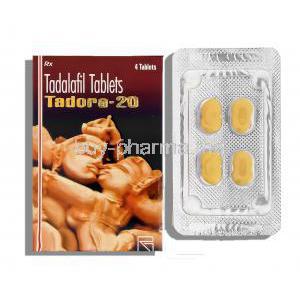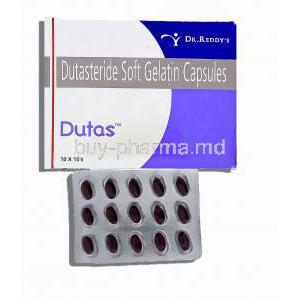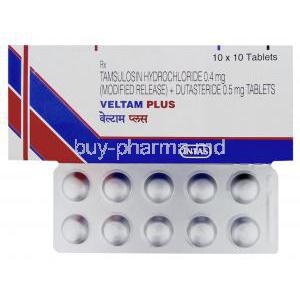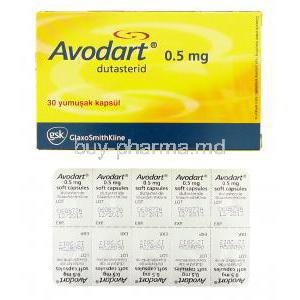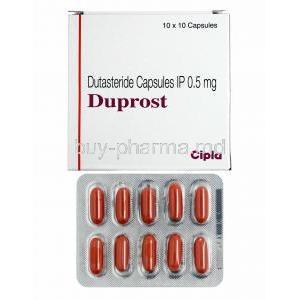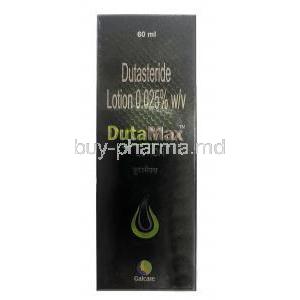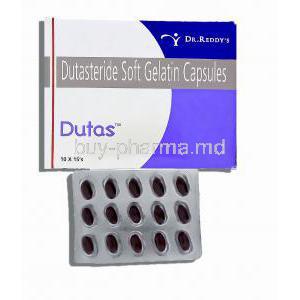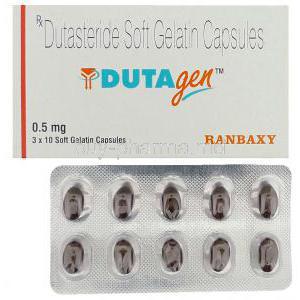Tadarise, Tadalafil
- Introduction
- Overview of Tadarise and its Active Ingredient Tadalafil
- Benefits of Tadalafil
- Composition and Formulation
- How Tadarise Works (Mechanism of Action)
- Dosage and Administration
- Recommended Starting Dose for Erectile Dysfunction
- Maximum Dose of Tadalafil for Erectile Dysfunction
- Daily Low-Dose Regimen vs On-Demand Use
- Dosage for Benign Prostatic Hyperplasia
- Dosage for Pulmonary Arterial Hypertension
- Tadalafil Dose for High Blood Pressure
- Adjustments for Renal or Hepatic Impairment
- Timing of Administration with or Without Food
- Daily Dose of Tadalafil for Erectile Dysfunction
- Tadalafil Uses
- Erectile Dysfunction (ED) Treatment
- Benign Prostatic Hyperplasia (BPH) Symptom Relief
- Pulmonary Arterial Hypertension (PAH) Management
- Tadalafil for Premature Ejaculation
- Tadalafil for Blood Pressure
- Tadalafil for Women
- Tadalafil for Working Out
- Tadalafil for Premature Ejaculation
- Tadalafil for Muscle Growth
- Off-Label Uses
- Administration in Special Populations
- Overdosage and Emergency Measures
- Side Effects
- Overview of Side Effect Profile
- Common Side Effects
- Headache
- Flushing
- Indigestion
- Muscle Aches and Back Pain
- Nasal Congestion
- Tadalafil Heartburn
- Tadalafil vs Sildenafil Side Effects
- Tadalafil Effects on Kidneys
- Less Common but Serious Side Effects
- Vision Disturbances (NAION Risk)
- Hearing Loss
- Priapism
- Hypotension
- Interactions with Other Substances
- Interaction with Nitrates and Risk of Severe Hypotension
- Interaction with Alpha-Blockers and Antihypertensives
- Interaction with CYP3A4 Inhibitors and Inducers
- Interaction with Alcohol
- Interaction with Recreational Drugs
- Vardenafil vs Tadalafil
- Tadalafil vs Cialis
- Sildenafil and Tadalafil
- Sildenafil and Tadalafil Combination Tablets
- Contraindications
- Warnings and Important Precautions
- Careful Administration
- Handling and Storage
- Handling Precautions for Healthcare Providers
Introduction
Tadarise is a medication containing Tadalafil, which is used to treat erectile dysfunction. The drug was created after years of research into how blood vessels function. While other, shorter-acting drugs like Sildenafil were initially more popular, Tadarise has become notable for its longer-lasting effects and flexible dosage options. It is now used for both sexual health and in research on how the body's blood vessels are regulated.

Overview of Tadarise and its Active Ingredient Tadalafil
Tadarise is a medication that contains Tadalafil, a powerful drug used to treat erectile dysfunction. It belongs to a class of drugs called PDE5 inhibitors that work by altering cellular signals to help restore erectile function.
First approved in the early 2000s, Tadarise is now available globally, including in generic forms. What sets Tadarise apart from other Tadalafil products is its variety of formulations. While most brands only offer standard pills, Tadarise also comes in chewable and sublingual (under-the-tongue) tablets, giving patients more flexible treatment options.
Benefits of Tadalafil
Tadalafil, the active ingredient in Tadarise, offers benefits beyond treating erectile dysfunction. Its effects can last for up to 36 hours, allowing for more spontaneity than shorter-acting medications.
Additionally, Tadalafil has been studied for its potential to treat other conditions, such as pulmonary arterial hypertension and benign prostatic hyperplasia (BPH).
The medication's long-lasting effects also make it suitable for a once-daily regimen in some patients, which can make it easier to stick to a treatment plan.
Composition and Formulation
The key ingredient in Tadarise is Tadalafil. While Tadalafil is responsible for the medication's effects, other inactive ingredients, known as excipients, are included to ensure it's stable and effective.
Tadarise is available in various strengths, most commonly 5 mg, 10 mg, and 20 mg. It comes in different forms, including traditional tablets, chewables for easy use, and sublingual tablets that dissolve under the tongue for faster absorption.
These ingredients work together to ensure the medication is properly absorbed by the body and remains stable during storage.
How Tadarise Works (Mechanism of Action)
Tadarise works by stopping the enzyme phosphodiesterase type 5 (PDE5) from breaking down a key molecule called cGMP. By preventing this breakdown, Tadarise helps relax the muscles in the penis. This process increases blood flow to the area, which helps you get and keep an erection.
The medication typically starts working in about 30 to 45 minutes and its effects can last for up to 36 hours, much longer than similar drugs like Sildenafil. Because of its long-lasting effects, Tadarise is often called the "weekend pill," as it offers more flexibility for a longer period.
Dosage and Administration
Recommended Starting Dose for Erectile Dysfunction
For treating erectile dysfunction, the usual starting dose of Tadalafil is 10 mg, taken as needed before sexual activity. This dose is a good starting point because it's effective for most people while also having a low risk of side effects. A doctor can adjust the dose based on how well it works and how you tolerate it.

Maximum Dose of Tadalafil for Erectile Dysfunction
For treating erectile dysfunction as needed, the highest recommended dose is 20 mg within a 24-hour period. Taking more than this won't make the drug work better but will increase your chances of experiencing side effects such as indigestion or headaches. While a 10 mg dose is sufficient for many people, the higher 20 mg dose is reserved for those who need a stronger effect.
Daily Low-Dose Regimen vs On-Demand Use
Tadalafil can be taken in two ways:
- A daily low dose (usually 2.5 mg to 5 mg) to allow for spontaneity at any time.
- A higher, as-needed dose (10 mg or 20 mg), taken just before sexual activity.
The best option depends on how often you plan to have sex, what you prefer, and any other health conditions you may have.
Dosage for Benign Prostatic Hyperplasia
For benign prostatic hyperplasia (BPH), the recommended dose is 5 mg taken once a day, preferably at the same time each day. This consistent daily dose helps improve urinary flow and eases discomfort in the lower urinary tract, so you don't need to take it as symptoms appear.
Dosage for Pulmonary Arterial Hypertension
Tadalafil is also approved to treat pulmonary arterial hypertension. The standard dose for this condition is 40 mg, taken as two 20 mg tablets once a day. This higher dose helps widen the blood vessels in the lungs, which improves a person's ability to exercise and reduces resistance in the blood vessels.

Tadalafil Dose for High Blood Pressure
While Tadalafil isn't primarily a treatment for high blood pressure, studies have looked into its ability to widen blood vessels. Daily doses of 5 mg to 20 mg have been shown to slightly lower blood pressure, especially in men who also have erectile dysfunction. However, it's not typically recommended to be used on its own as a blood pressure medication.
Adjustments for Renal or Hepatic Impairment
Dosage of Tadalafil needs to be adjusted carefully for people with kidney or liver problems:
- Kidney issues: If you have moderate kidney dysfunction, your maximum dose may be limited to 10 mg every 48 hours. If your impairment is severe, you typically cannot take the medication daily.
- Liver issues: For mild to moderate liver problems, it's best to use the lowest effective dose. People with severe liver impairment should generally not use Tadalafil.
Timing of Administration with or Without Food
You can take Tadalafil with or without food. It doesn't matter if you have a light meal or a high-fat one, as food doesn't affect how the medication is absorbed. This gives you more flexibility when you take your dose.
Daily Dose of Tadalafil for Erectile Dysfunction
For the daily treatment of erectile dysfunction, the typical dose is 2.5 mg to 5 mg, taken once a day. This consistent routine ensures the medication stays in your system, allowing for spontaneity and removing the pressure of timing a dose before sexual activity. Many people find that sticking to this daily regimen is well-tolerated and can help boost their sexual confidence over time.
Tadalafil Uses
Erectile Dysfunction (ED) Treatment
Tadalafil is a well-known and effective treatment for erectile dysfunction, regardless of whether the cause is physical (vascular) or psychological. It works by improving blood flow to the penis, which helps men get and maintain an erection.
Because the medication can last for up to 36 hours, it gives men more spontaneity and confidence in intimate situations.
Benign Prostatic Hyperplasia (BPH) Symptom Relief
. ATadalafil can help with the urinary symptoms of benign prostatic hyperplasia (BPH) daily 5 mg dose can improve urine flow and reduce nighttime urination and urgency. Because it helps with both urinary issues and erectile function, Tadalafil is unique among other PDE5 inhibitors.

Pulmonary Arterial Hypertension (PAH) Management
Tadalafil is also used to treat pulmonary arterial hypertension. Taken at a dose of 40 mg once a day, it helps lower the resistance in the blood vessels in the lungs. This, in turn, makes it easier to exercise and reduces the strain on the right side of the heart. This use highlights Tadalafil's effects on the body's blood vessels beyond just sexual health.
Tadalafil for Premature Ejaculation
While not an approved treatment for premature ejaculation, some studies suggest that Tadalafil may help. It could prolong the time until ejaculation by reducing performance anxiety and increasing overall sexual satisfaction. The medication is typically considered an option when a person experiences both erectile dysfunction and premature ejaculation.
Tadalafil for Blood Pressure
Tadalafil can cause a small drop in blood pressure because it widens blood vessels throughout the body. While this might be a benefit for people with borderline high blood pressure, it's important to be careful when taking it with other blood pressure medications. Combining it with drugs like nitrates or alpha-blockers can lead to a significant and potentially dangerous drop in blood pressure.
Tadalafil for Women
Some research is exploring whether Tadalafil can help with female sexual arousal disorder. The idea is that by increasing blood flow to the genitals, it might improve lubrication and sensitivity. However, studies so far have been inconclusive, and more research is being done to see if it is a viable treatment option for women.
Tadalafil for Working Out
Some people are starting to use Tadalafil to help with their workouts. The drug's ability to widen blood vessels might increase the amount of oxygen that gets to the muscles, which could boost endurance. While some athletes say it helps them recover faster, these claims haven't been scientifically proven yet.

Tadalafil for Premature Ejaculation
The link between Tadalafil and premature ejaculation is still being researched. It seems to help secondarily by boosting a person's confidence in their ability to get an erection and allowing for longer sexual encounters. While it shouldn't be considered a primary treatment, it can be beneficial when used with other therapies, like behavioral therapy or SSRIs.
Tadalafil for Muscle Growth
Some theories suggest that Tadalafil might help with muscle growth. By widening blood vessels, it could increase the flow of nutrients and oxygen to muscles, which could, in theory, help them grow during weight training. However, this is still just a theory, and there isn't much scientific evidence to prove that it provides long-term benefits for muscle building.
Off-Label Uses
Peyronie's disease
Some research has looked at using Tadalafil to help with Peyronie's disease, a condition that causes a curved and painful erection due to scar tissue in the penis.
While it won't cure the disease, Tadalafil may help maintain sexual function by increasing blood flow and improving erectile firmness. This can help reduce discomfort and boost sexual confidence for those with the condition.
Sexual Performance Anxiety and Premature Ejaculation Support
In addition to treating erectile dysfunction, Tadalafil can also help with sexual performance anxiety. By ensuring a reliable erection, it reduces the psychological stress men might feel during sex. This can lead to longer-lasting sexual encounters, which may also help men who experience premature ejaculation. When used with behavioral or psychological therapy, Tadalafil can be part of a comprehensive treatment plan for performance-related issues.
Female Sexual Arousal Disorder Studies
Studies have looked at using Tadalafil to treat sexual arousal disorders in women. Because the drug widens blood vessels, it can increase blood flow to the genitals and boost clitoral sensitivity. Initial research has shown that some women experienced better lubrication and were able to have orgasms more easily. However, more extensive trials are needed to confirm these results. This research shows that there's a growing interest in using medications like Tadalafil for more than just men's health issues.
Raynaud's Phenomenon
Some people are using Tadalafil experimentally to treat Raynaud's phenomenon, a condition that causes blood vessels in the fingers and toes to spasm. By widening these blood vessels, the medication may help reduce the painful and discolored episodes. Patients with Raynaud's caused by a condition like systemic sclerosis may find it especially helpful. While early results are positive, more research is needed before this becomes a standard treatment.

Research in Infertility and Endometriosis
New research suggests that Tadalafil may have uses in reproductive medicine. For men, it might help with infertility by improving erectile function and semen quality through better blood flow to the testes. For women, it's being studied as a potential treatment for endometriosis-related pelvic pain, as it could increase blood flow to the uterus and reduce inflammation. These early findings point to broader uses for the medication in reproductive health.
Administration in Special Populations
Administration to Elderly Patients
Doctors often start elderly patients on a lower dose of Tadalafil, such as 5 mg daily or 10 mg as needed, because older bodies process medications more slowly. This is due to a decline in how well their kidneys and liver function.
It's important to keep an eye on these patients for side effects like dizziness or low blood pressure, and to monitor for any potential drug interactions, especially since many elderly individuals take multiple medications.
Administration to Pregnant Women and Nursing Mothers
Due to a lack of research, Tadalafil is not recommended for pregnant or breastfeeding women. There isn't enough information about its potential to cause birth defects or whether it can be passed through breast milk. The possible benefits for the mother must be carefully weighed against the unknown risks to the baby.
Administration to Children and Adolescents
Tadalafil is not recommended for children to treat erectile dysfunction. While some studies are looking into its use for pulmonary arterial hypertension in children, there are currently no standard dosage guidelines. Any use of the medication in children should be done with extreme caution and under close medical supervision.

Overdosage and Emergency Measures
Symptoms of Tadalafil Overdose
Taking too much Tadalafil can lead to more intense side effects, such as:
- Severe headaches and flushing
- A significant drop in blood pressure that could cause you to faint
- A prolonged erection (priapism) lasting more than four hours
- Changes in vision or hearing
Recommended Emergency Interventions
If you take too much Tadalafil, you need to seek immediate medical help. Doctors will take steps to stabilize your blood pressure with IV fluids and may use medications to raise your blood pressure if needed. You may also be given oxygen and have your heart continuously monitored. If you have a prolonged erection (priapism), you will need an urgent medical procedure to address it.
Long-Term Risks of Chronic Overdose
Repeatedly taking too much Tadalafil can lead to serious, long-term health problems. This includes the risk of permanent retinal damage, hearing loss, or persistent episodes of low blood pressure.
Chronic overuse also puts a strain on your kidneys and cardiovascular system. In rare cases, some people may also develop a psychological dependence on the medication due to misuse.

Side Effects
Overview of Side Effect Profile
While Tadalafil is generally safe, it can cause side effects, both common and serious. Most of these effects are temporary, and their severity depends on the dosage. They typically go away on their own without needing any treatment.
Common Side Effects
Headache
The most common side effect of Tadalafil is a headache, which happens because the medication widens blood vessels in the brain. The headache usually goes away in a few hours, but it may last longer with higher doses.
Flushing
Flushing, which is a feeling of warmth and redness in the face, is a harmless side effect caused by the medication widening your blood vessels. Some people may feel embarrassed by it, though.

Indigestion
Tadalafil can cause indigestion because it relaxes the muscle at the bottom of the esophagus. This can often be relieved with antacids or by making changes to your diet and lifestyle.
Muscle Aches and Back Pain
Muscle aches and lower back pain are common side effects that often appear 12 to 24 hours after taking the medication. They are caused by changes in blood flow to the muscles and usually go away on their own within two days.

Nasal Congestion
Nasal mucosal engorgement can lead to nasal congestion. Saline sprays or antihistamines may alleviate symptoms without affecting efficacy.
Tadalafil Heartburn
Heartburn is sometimes experienced, resulting from changes in gastroesophageal motility. Taking the medication with water and steering clear of late-night doses may help lessen occurrences.
Tadalafil vs Sildenafil Side Effects
When compared to Sildenafil, Tadalafil is less likely to cause visual side effects like a blue tint in your vision. However, it is more likely to cause longer-lasting muscle or back pain.
Tadalafil Effects on Kidneys
Renal effects are usually minimal in healthy people, but those with pre-existing issues might face slower drug clearance. Adjusting the dose is essential to avoid accumulation and negative consequences.

Less Common but Serious Side Effects
Vision Disturbances (NAION Risk)
There have been very rare cases of sudden vision loss reported while taking Tadalafil. This condition is called NAION, and people with a history of vascular problems should be especially cautious.
Hearing Loss
Sudden sensorineural hearing loss, while rare, has been reported. This condition may also be associated with tinnitus or dizziness, requiring immediate cessation and urgent assessment.
Priapism
Erections lasting more than four hours necessitate emergency care to avoid lasting tissue damage. Priapism is a rare yet severe complication that requires prompt intervention.
Hypotension
Marked drops in blood pressure may happen, particularly when used with nitrates or alpha-blockers. Symptoms can include dizziness, fainting, and in severe instances, possible cardiovascular collapse.

Interactions with Other Substances
Interaction with Nitrates and Risk of Severe Hypotension
Combining tadalafil with nitrates, such as nitroglycerin, is dangerous because it can cause a severe and life-threatening drop in blood pressure. Both medications work in similar ways to widen blood vessels, and when taken together, their combined effect can lead to fainting, heart attack, or circulatory collapse.
Interaction with Alpha-Blockers and Antihypertensives
Tadalafil can amplify the blood pressure–lowering effects of alpha-adrenergic blockers and other antihypertensive medications. Clinical signs may include dizziness, lightheadedness, and orthostatic hypotension. Patients who are stable on antihypertensive treatment should be monitored carefully when starting Tadalafil, with gradual titration to prevent sudden hemodynamic instability.
Interaction with CYP3A4 Inhibitors and Inducers
The liver's CYP3A4 enzyme is responsible for breaking down tadalafil.
- When you take strong CYP3A4 inhibitors, like ketoconazole or ritonavir, they can cause tadalafil to build up in your body, increasing the risk of side effects.
- Conversely, CYP3A4 inducers, such as rifampicin, speed up the removal of tadalafil from your system, which can make the medication less effective.
In either case, your doctor may need to change your dosage or switch you to a different treatment.
Interaction with Alcohol
Drinking too much alcohol while taking tadalafil can increase your risk of low blood pressure, dizziness, and impaired thinking. Although a small amount of alcohol may be fine, it's best to limit your intake to maintain stable blood pressure and avoid adverse effects.

Interaction with Recreational Drugs
Using illegal drugs that affect blood vessels, such as amyl nitrite (often called "poppers"), while on tadalafil is extremely dangerous. The combination can cause a sudden and severe drop in blood pressure, leading to fainting and potentially fatal heart failure. Furthermore, stimulant drugs can put additional stress on the heart when taken with PDE5 inhibitors like tadalafil.
Vardenafil vs Tadalafil
While both vardenafil and tadalafil are PDE5 inhibitors, they have different properties. Vardenafil's effects are shorter-lived, lasting only about 4 to 5 hours, while tadalafil's can last for up to 36 hours. They also have different side effects: vardenafil is more likely to cause vision problems, while tadalafil is more often associated with muscle and joint pain.
Tadalafil vs Cialis
Tadalafil is the active ingredient in the brand-name medication Cialis. While they are medically the same, Cialis is often more expensive due to its brand recognition and marketing. Generic versions like Tadarise contain the identical active ingredient, providing the same therapeutic benefits at a lower cost.
Sildenafil and Tadalafil
Sildenafil was the first PDE5 inhibitor available, but its effects are short-lived, lasting only about 4 to 6 hours. In contrast, tadalafil's longer duration of action provides more flexibility for sexual spontaneity and is often preferred for a daily treatment plan.
Sildenafil and Tadalafil Combination Tablets
Some products now combine sildenafil and tadalafil to offer a medication that works quickly like sildenafil but also has the long-lasting effects of tadalafil. However, this combination increases the risk of side effects such as low blood pressure and priapism (a prolonged erection). There is limited research to prove that these combination pills are more effective than using either medication alone.

Contraindications
Severe Cardiovascular Disease
Tadalafil is not recommended for patients who have unstable angina, recently had a heart attack, or suffer from uncontrolled arrhythmias or advanced heart failure. The combination of sexual activity and the drug's blood vessel-widening effects can put a dangerous strain on the heart, potentially leading to a cardiac event.
Concurrent Nitrate Therapy
The use of Tadalafil in patients undergoing nitrate therapy is firmly contraindicated. This interaction can cause severe drops in blood pressure, creating considerable risks to cardiovascular stability.
History of Vision-Threatening Ocular Conditions
Individuals with a background of non-arteritic anterior ischemic optic neuropathy (NAION) or other significant ocular ischemic incidents should steer clear of Tadalafil. The medication has been linked to infrequent instances of abrupt vision loss, presumably caused by vascular compromise within the optic nerve.
Known Hypersensitivity to Tadalafil
Patients who have a documented allergy to Tadalafil or any of its excipients should not receive this medication. Hypersensitivity can present as a skin rash, angioedema, or in extreme instances, anaphylaxis.
Warnings and Important Precautions
Cardiovascular Risk in Sexual Activity
Sexual activity puts a strain on the heart, causing your pulse to quicken, blood pressure to change, and the heart's need for oxygen to increase. For people with existing or undiagnosed heart disease, this added stress can lead to chest pain, an irregular heartbeat, or even a heart attack.
- Before starting treatment, your doctor should evaluate your heart's health.
- If you experience fainting, chest tightness, or a fluttering heart during physical activity, stop immediately.

- Never take this medication with nitrates, as the combination can cause a dangerous drop in blood pressure.
Caution in Patients with Anatomical Penile Deformities
If you have a physical abnormality in your penis, such as Peyronie's disease, scar tissue, or a severe curve, you are more susceptible to injury. Using medication to achieve an erection can increase local stress and discomfort.
- Start with a low dose and don't increase it without a doctor's consultation.
- Watch for any pain, a worsening curve, or signs of micro-trauma.
- If the deformity gets worse, see a urologist right away.
Risk of Priapism and Emergency Protocols
An erection lasting longer than four hours is a medical emergency. This condition, known as priapism, can quickly lead to a lack of oxygen in the penile tissue and cause permanent damage.
What to Look For and What to Do
- Identify early signs: Look for an erection that won't go down, increasing pain, or a dusky, bluish discoloration of the penis.
- Act promptly: Seek immediate emergency medical care. Doctors may use aspiration (draining blood from the penis), inject medication, or perform surgery to restore blood flow.
- Document prior episodes: If you have had this happen before, be sure to tell your doctor. This will help them decide if your dose needs to be adjusted or if you should stop the medication entirely.
Effects on Vision and Hearing
While rare, some serious side effects have been reported, including sudden vision loss in one eye or sudden hearing loss. These can occur without any warning.
- If you experience either of these symptoms, stop taking the medication right away.
- See an eye doctor or an ear, nose, and throat doctor as soon as possible.
- If you have a history of vision problems, vascular issues, or a family history of a "crowded optic disc," you should be especially vigilant.
Driving and Operating Machinery Precautions
Common side effects of this medication, such as dizziness, blurred vision, and drowsiness, can affect your ability to drive or operate machinery. Your reaction time might also be a bit slower when the medication is at its highest level in your body.
- Before you engage in any task that requires alertness, you should know how the medication affects you.
- If you experience low blood pressure, vision changes, or vertigo, do not operate heavy machinery.
- Avoid drinking alcohol if you need to stay alert.
Careful Administration
Patients with Hepatic Impairment
The drug is mainly processed by the CYP3A4 enzyme in the liver. If your liver isn't working well, the drug will stay in your system for longer.
- To manage this, doctors should start you on the lowest effective dose and may need to lengthen the time between doses.
- If you have severe liver disease, your doctor may recommend a different treatment altogether.
- It's important to watch for increased side effects, especially low blood pressure and indigestion.

Patients with Renal Impairment
If your kidneys don't work well, the medication can build up in your body, increasing the risk of side effects like headaches, flushing, and muscle aches.
- For moderate kidney problems, your doctor should limit the amount and frequency of your dosage.
- If you have severe kidney impairment or are on dialysis, a daily regimen is typically not recommended.
- If you're on this medication long-term, your doctor should regularly check your kidney function.
Patients with Uncontrolled Hypertension or Hypotension
If your blood pressure is extremely high or low, using this medication can make an already unstable situation worse.
- You should not start this medication until your blood pressure is under control.
- Your doctor should monitor how your body reacts, especially when you first start taking it or when your dose is changed, to make sure you aren't experiencing sudden drops in blood pressure when you stand up.
- Your doctor should also check your other blood pressure medications to see if the combined effect could cause your blood pressure to drop too low.
Patients with Bleeding Disorders or Peptic Ulcer Disease
Inhibition of the PDE5 enzyme can slightly affect how platelets function and how blood flows to mucous membranes. For people who are already at risk, this could increase their chances of bleeding.
- Be cautious when using this medication along with blood thinners or antiplatelet drugs.
- If you have an active peptic ulcer or a history of one, your doctor might recommend a medication to protect your stomach.
- Pay attention to any signs of bleeding, such as black, tarry stools (melena), vomiting blood (hematemesis), or unexplained bruises.
Handling and Storage
Proper Storage Conditions (Temperature, Humidity)
To keep your tablets effective, store them in a cool, dry place. Heat and moisture can cause the medication to break down faster.
- Keep your medication at a temperature between 68°F and 77°F (20°C and 25°C), though it can handle temperatures from 59°F to 86°F (15°C to 30°C) for short periods.
- Always keep the tablets in their original, tightly sealed container with the drying packet inside.
- Don't store them in places like bathrooms, cars, or on windowsills where they can be exposed to heat or sunlight.
Shelf Life and Stability
The medication will stay effective until its expiration date as long as you store it properly.
- Never use the tablets after the expiration date.
- Before taking a tablet, check it for any discoloration, cracks, or a strange smell.
- If you are using a bottle with multiple tablets, it's a good idea to write down the date you opened it.
Safe Handling to Avoid Misuse or Accidental Ingestion
Accidental ingestion of this medication can be very dangerous, especially for children or people who take nitrates.
- Keep your medication in a secure place where children and pets can't see or reach it.
- Never share your tablets with anyone, as the correct dosage is specific to each person's needs.
- Hold on to the patient information leaflet so you can refer to it if needed.
Disposal of Expired or Unused Medication
Improperly getting rid of this medication can harm the environment and lead to it being misused.
- Use community take-back programs if they are available in your area.
- If a take-back program isn't an option, follow your local guidelines for throwing away medication at home.
- Always remove any personal information from the packaging before you throw it away.
Handling Precautions for Healthcare Providers
Safe Dispensing Practices
To ensure a patient's safety, it's crucial to select the correct product and provide proper guidance. Because some PDE5 inhibitors and their different strengths have similar names, mistakes can happen.
- Double-check the medication, its strength, and the patient's identity at every step.
- Clearly explain how often to take the medication and warn the patient that it cannot be taken with nitrates.
- Be sure to document that you have provided this information and note any other medications the patient is taking that might interact with this one.
Avoiding Cross-Contamination with Other Medications
Cross-contamination is a risk that can occur when repackaging or preparing individual doses of medication.
- Use clean, separate counting trays and spatulas for each product and sanitize them after every use.
- Keep similar-looking medications apart to avoid mixing them up.

- Follow proper procedures when reconditioning blister packs to ensure accuracy.
Patient Counseling on Adherence and Safety
Providing clear and comprehensive guidance to patients is key to a positive outcome and helps prevent harm. Simple, easy-to-remember instructions, supported by written materials, are most effective.
- Explain how quickly the medication works, how long the effects last, and when to avoid alcohol or other interacting medications.
- Teach patients to recognize urgent "red-flag" symptoms like chest pain, a prolonged erection (priapism), or sudden changes in vision or hearing.
- Encourage patients to attend regular follow-up appointments to assess how well the medication is working, discuss any side effects, and manage any other health conditions.
Tadarise, Tadalafil FAQ
- How long does Tadalafil last?
- How long does Tadalafil take to work?
- Does Tadalafil lower blood pressure?
- Sildenafil or Tadalafil?
- How long does Tadalafil stay in your system?
- How much Tadalafil can I take?
- Does Tadalafil increase testosterone?
- Tadalafil how long does it last?
- Sildenafil or Tadalafil which is better?
- Difference between Tadalafil and Sildenafil?
- Can you take Sildenafil and Tadalafil together?
- What can you not take with Tadalafil?
- How long after taking Tadalafil can I drink alcohol?
- How fast does Tadalafil work?
- Best time to take Tadalafil?
- How much Tadalafil should I take?
- Does Tadalafil increase size?
- Does Tadalafil help with premature ejaculation?
- Does Tadalafil raise blood pressure?
- Is Tadalafil a blood thinner?
- Tadalafil how long does it take to work?
- Does Tadalafil cause heartburn?
- How much Tadalafil can you take?
- Can Tadalafil lower blood pressure?
- When does Tadalafil peak?
- Can you mix Sildenafil and Tadalafil?
- Does Tadalafil make you last longer?
- Are Tadalafil and Sildenafil the same?
- Are Tadalafil and Cialis the same?
- Are Tadalafil and Tamsulosin the same?
- Are Tadalafil tablets safe?
- Are Tadalafil and Viagra the same?
- Are Tadalafil side effects common?
- What are Tadalafil tablets used for?
- Are all Tadalafil the same?
- Can Tadalafil damage kidneys?
- Can Tadalafil be taken daily?
- Can Tadalafil raise blood pressure?
- Can Tadalafil cause heartburn?
- Can Tadalafil cause insomnia?
- Can Tadalafil increase blood pressure?
- Can Tadalafil and Sildenafil be taken together?
- Can Tadalafil cause high blood pressure?
- Can Tadalafil be cut in half?
- Can Tadalafil cause headaches?
- Can Tadalafil cause heart attack?
- Can Tadalafil be taken with alcohol?
- Can Tadalafil cause cancer?
- Can Tadalafil cause back pain?
- How Tadalafil works in women?
- How Tadalafil works in BPH?
- How Tadalafil works for enlarged prostate?
- How Tadalafil works in body?
- Tadalafil how long does it last?
- How Tadalafil cure erectile dysfunction?
- Tadalafil how long to work?
- Tadalafil which group of drug?
- Why Tadalafil is better than Sildenafil?
- Why Tadalafil is not working for me?
- Will Tadalafil lower blood pressure?
- Will Tadalafil make you fail a drug test?
- Will Tadalafil make you harder?
- Will Tadalafil shrink prostate?
How long does Tadalafil last?
Tadalafil can remain effective for as long as 36 hours, which is why it’s commonly called the "weekend pill."
How long does Tadalafil take to work?
Tadalafil typically starts to take effect within 30 to 60 minutes after consumption, although in certain instances it might take as long as 2 hours.
Does Tadalafil lower blood pressure?
Sildenafil or Tadalafil?
Sildenafil generally remains effective for 4–6 hours, whereas Tadalafil can last up to 36 hours. Therefore, the selection depends on the preferred duration and lifestyle convenience.
How long does Tadalafil stay in your system?
Tadalafil has a half-life of approximately 17.5 hours and can stay in the body for as long as 2 days.
How much Tadalafil can I take?
The typical dose is 10–20 mg taken prior to sexual activity, not exceeding once daily; for regular use, 2.5–5 mg is suggested.
Does Tadalafil increase testosterone?
Tadalafil might enhance testosterone levels indirectly by boosting blood circulation and sexual engagement, although it is not specifically prescribed for increasing testosterone.
Tadalafil how long does it last?
Tadalafil generally remains effective for up to 36 hours, providing a more extended period of action compared to other PDE5 inhibitors.
Sildenafil or Tadalafil which is better?
Tadalafil is favored for its extended duration and daily dosing option, whereas Sildenafil is typically selected for short-term use; what’s “better” varies based on personal needs.
Difference between Tadalafil and Sildenafil?
The key differences lie in the duration of action (36 hours for Tadalafil compared to 4–6 hours for Sildenafil) and the onset time, with both being effective in treating erectile dysfunction.
Can you take Sildenafil and Tadalafil together?
No, it's not advisable to combine them, as it heightens the risk of side effects like low blood pressure and priapism.
What can you not take with Tadalafil?
Tadalafil must not be combined with nitrates, specific alpha-blockers, excessive alcohol, or other PDE5 inhibitors because of potentially harmful interactions.
How long after taking Tadalafil can I drink alcohol?
Moderate alcohol consumption is permissible, but it's best to avoid excessive drinking; ideally, wait a few hours after taking Tadalafil to reduce the risk of side effects.
How fast does Tadalafil work?
Tadalafil can take effect in as little as 30 minutes, although peak effectiveness is typically reached within 2 hours.
Best time to take Tadalafil?
For on-demand use, take it 30 to 60 minutes prior to sexual activity; for daily use, take it consistently at the same time each day.
How much Tadalafil should I take?
The suggested initial dose is 10 mg as required, adjustable between 5–20 mg; for daily use, 2.5–5 mg is recommended.
Does Tadalafil increase size?
No, Tadalafil does not increase penis size; it solely enhances erectile function by improving blood flow.
Does Tadalafil help with premature ejaculation?
Tadalafil isn't specifically approved for treating premature ejaculation, but some men might experience better control thanks to decreased performance anxiety and improved erectile function.
Does Tadalafil raise blood pressure?
No, Tadalafil typically reduces blood pressure a bit since it relaxes blood vessels, although this effect is generally mild.
Is Tadalafil a blood thinner?
No, Tadalafil is not a blood thinner; it functions by inhibiting PDE5 to enhance blood flow in erectile tissues.
Tadalafil how long does it take to work?
Tadalafil generally starts to take effect within 30 to 60 minutes, with maximum effects occurring within 2 hours.
Does Tadalafil cause heartburn?
Yes, Tadalafil may lead to indigestion or heartburn in certain individuals because it relaxes the lower esophageal sphincter.
How much Tadalafil can you take?
The highest suggested dose for on-demand use is 20 mg within a 24-hour period; for daily use, a typical range is 2.5 to 5 mg.
Can Tadalafil lower blood pressure?
Yes, Tadalafil can modestly reduce blood pressure, particularly when taken with nitrates or alcohol, which may pose risks.
When does Tadalafil peak?
Tadalafil attains its peak blood concentration roughly 2 hours following oral intake.
Can you mix Sildenafil and Tadalafil?
No, combining Sildenafil and Tadalafil is not recommended because it raises the risk of serious side effects such as hypotension.
Does Tadalafil make you last longer?
Tadalafil can indirectly assist men in prolonging their endurance by sustaining erections, but it does not serve as a direct solution for premature ejaculation.
Are Tadalafil and Sildenafil the same?
No, Tadalafil can last up to 36 hours, whereas Sildenafil typically lasts around 4 to 6 hours, although both are used to treat erectile dysfunction.
Are Tadalafil and Cialis the same?
Yes, Cialis is the brand name for Tadalafil, meaning they are essentially the same medication.
Are Tadalafil and Tamsulosin the same?
No, Tadalafil is used to address erectile dysfunction, whereas Tamsulosin is prescribed for urinary issues resulting from an enlarged prostate.
Are Tadalafil tablets safe?
Tadalafil is typically safe when used with medical supervision; however, it may not be appropriate for individuals with heart disease or those on nitrates.
Are Tadalafil and Viagra the same?
No, Viagra is the brand name for Sildenafil, whereas Cialis is the brand name for Tadalafil.
Are Tadalafil side effects common?
Mild side effects such as headaches, flushing, and indigestion are fairly common but typically short-lived.
What are Tadalafil tablets used for?
Tadalafil tablets are prescribed for erectile dysfunction, benign prostatic hyperplasia, and occasionally pulmonary arterial hypertension.
Are all Tadalafil the same?
All Tadalafil medications have the same active ingredient, although both branded and generic versions may vary in cost and inactive ingredients.
Can Tadalafil damage kidneys?
Tadalafil generally does not harm the kidneys; however, adjustments to the dose might be required for patients with kidney disease.
Can Tadalafil be taken daily?
Yes, Tadalafil can be taken daily at lower doses (2.5 to 5 mg) for ongoing treatment of erectile dysfunction or urinary symptoms.
Can Tadalafil raise blood pressure?
No, Tadalafil typically reduces blood pressure a bit by relaxing blood vessels, though this effect is usually mild unless taken with other medications such as nitrates.
Can Tadalafil cause heartburn?
Yes, Tadalafil can lead to heartburn or indigestion in certain individuals because of its impact on the smooth muscles within the gastrointestinal tract.
Can Tadalafil cause insomnia?
Insomnia is not a typical side effect; however, some individuals might face challenges with sleep, often linked to heightened blood flow and stimulation.
Can Tadalafil increase blood pressure?
No, Tadalafil does not raise blood pressure; it usually leads to a slight reduction.
Can Tadalafil and Sildenafil be taken together?
No, it is not advisable to combine Tadalafil and Sildenafil, as this raises the risk of significant hypotension and extended erections.
Can Tadalafil cause high blood pressure?
No, Tadalafil is not associated with raising blood pressure; in fact, it might slightly reduce it.
Can Tadalafil be cut in half?
Yes, most Tadalafil tablets can be divided if they aren't film-coated or extended-release. However, any dosage changes should be made only with medical guidance.
Can Tadalafil cause headaches?
Yes, headaches are among the most frequent side effects of Tadalafil as a result of blood vessel dilation.
Can Tadalafil cause heart attack?
Can Tadalafil be taken with alcohol?
Tadalafil can be consumed with limited amounts of alcohol, but heavy drinking heightens the chances of dizziness, low blood pressure, and fainting.
Can Tadalafil cause cancer?
There is no evidence connecting Tadalafil to the development of cancer.
Can Tadalafil cause back pain?
Yes, back pain and muscle soreness are commonly reported side effects, typically mild and short-lived.
How Tadalafil works in women?
Tadalafil is not approved for women; however, research indicates it might enhance blood flow to pelvic tissues, which could influence arousal or pain-related issues.
How Tadalafil works in BPH?
How Tadalafil works for enlarged prostate?
Tadalafil alleviates urinary issues caused by an enlarged prostate by relaxing the muscle fibers in both the prostate and the bladder neck.
How Tadalafil works in body?
Tadalafil inhibits PDE5, an enzyme responsible for breaking down cGMP, which results in enhanced blood flow to erectile tissues and relaxation of smooth muscles.
Tadalafil how long does it last?
Tadalafil can remain effective for up to 36 hours, providing a significantly extended duration of action when compared to many other options.
How Tadalafil cure erectile dysfunction?
Tadalafil enhances erectile function by increasing blood flow to the penis during sexual arousal; it does not provide a permanent cure for erectile dysfunction.
Tadalafil how long to work?
Tadalafil generally begins to take effect within 30 to 60 minutes, reaching its peak around 2 hours.
Tadalafil which group of drug?
Tadalafil is classified as a PDE5 inhibitor.
Why Tadalafil is better than Sildenafil?
Tadalafil is frequently favored due to its duration of up to 36 hours, providing greater spontaneity, whereas Sildenafil generally lasts just 4 to 6 hours.
Why Tadalafil is not working for me?
Tadalafil may not be effective if taken without sexual stimulation, in the wrong dosage, with excessive alcohol, or if any underlying conditions are not properly addressed.
Will Tadalafil lower blood pressure?
Yes, Tadalafil can slightly reduce blood pressure because of its vasodilating effects.
Will Tadalafil make you fail a drug test?
No, Tadalafil is not typically detected in standard drug tests and will not lead to a failed result.
Will Tadalafil make you harder?
Yes, Tadalafil assists in achieving and sustaining firmer erections when paired with sexual arousal.
Will Tadalafil shrink prostate?
No, Tadalafil does not reduce the size of the prostate; it simply alleviates urinary symptoms by relaxing the smooth muscle tissue.

